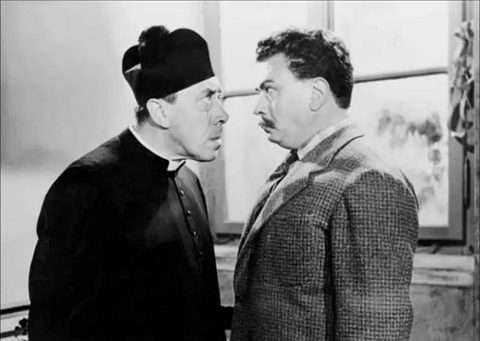Katherine Bayford compares the last set of cabinet ministers appointed by lame duck PM Boris Johnson with some of the Parliamentarians of the 20th century … and it’s difficult not to feel nostalgic for a past Golden Age at Westminster:

Prime Minister Boris Johnson at his first Cabinet meeting in Downing Street, 25 July 2019.
Official photograph via Wikimedia Commons.
One of Boris Johnson’s final, whimpering acts of power in his premiership was to appoint a new cabinet. Fatally wounded by a team of ministers made up of those with little charm, intelligence or experience, who was actually left for Boris to replace them with?
A veritable who’s-that of the worst unknowns that can be found down the side of parliamentary benches was swiftly conscripted in. I tell a lie — Johnny Mercer MP achieved mild public recognition for defending elderly soldiers accused of war crimes and getting very angry at certain risqué insinuations made in the comments section of the Plymouth Herald.
[…]
There is nothing unusual about this class of minister, however. They are representative figures: dim, without verbal sparkle, frequently light on narrow policy insights and wider understandings of social and economic history. The median British politician has been like this for decades now. Tony Blair would bemoan the shoddy material he had to work with at every reshuffle, and David Cameron likewise found himself struggling for a front bench neither too hateful nor too stupid. The difference in political acumen and sophistication from the most forgotten of ministerial interviews from fifty years ago reveal a steep decline in both the eloquence and elegance of our politicians.
Perhaps the 20th century spoiled the voting public. Pick any decade and you will discover frontline politicians with vast hinterlands. Harold Macmillan recited Aeschylus — in the original Greek — whilst lying shot in the trenches. Enoch Powell rose from private to brigadier during the Second World War, after becoming the youngest professor in the empire. When Winston Churchill was attempting to stay solvent in the face of decades worth of excess, he maintained financial buoyancy by being the highest-paid journalist in the world. Publishers adored him. He could be trusted to write a million-word definitive biography of his relative, the first Duke of Marlborough. Roy Jenkins would in turn distinguish himself as a biographer of Churchill — as well as Gladstone, and the Chancellors of the Exchequer at large. Second-hand embarrassment is the only proper response when comparing such authorial endeavours to Boris Johnson’s biography of Churchill.
It’s not a matter of our politicians not being able to write anymore. Compared to the recent past they can barely speak. Political debates have succumbed to an entropic, deadening mediocrity. Recent discourse between a patronising, bland Sunak and a po-faced, blank Truss was not a nadir: it was standard fare.
Look upon this 1970 debate between Jenkins and Powell. Both men hold articulate and intelligent positions, arguing intricately and considerately, with a commitment to truth rather than point-scoring. They agree where relevant and have an ability to articulate clearly and fluently. Half a century on, political debate of such quality seems unrealisable. When watching vintage ministerial debates, the viewer is struck by the level of knowledge and attention that the speakers assumed their audience would possess, whether on the finer points of tackling inflation or whether IRA bombers deserved to the death penalty.
The slightest glance at cabinets fifty years ago demonstrates a far higher set of standards and abilities than those found today. Harold Wilson — always keen to consolidate as much power as possible — nevertheless packed his cabinet with the best and brightest, even if he kept them in positions in which they wouldn’t be able to outshine him. Wilson himself was a subtle and clever debater, not above using cheap PR tricks (such as his much-perfected pipe smoking) but always as a tool to realise his political vision.
Mediocrity requires mediocrity in order to survive. When judged against excellence — or even simple competence — the insufficiencies of today’s politician become intolerable. It is this which leads the public to distrust politicians more than their policy choices.










